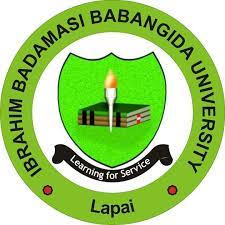History & Politics

History and Politics at IBBU
This course balances a strong grounding in the two component subjects with the chance to explore the ways in which historical and political understanding together illuminate the modern world.
Our course provides the opportunity to undertake intensive study in political science, the history of political thought, a wide variety of modern British, European, American and world history, conceptual issues in political science, and quantitative methods.
Teaching and resources
You’re taught by some of the most eminent academics in the world in their subjects. Staff in the Faculty of History and in the Department of Politics and International Studies (POLIS) have a wide range of shared interests in political and international history, and the historical origins of contemporary domestic and international politics and political ideas.
The Faculty of History has a teaching staff of more than a hundred, and the Seeley Library (one of the largest history libraries in the world) contains books and journals covering history and politics and international relations.
The Department of POLIS has particular research strengths in international politics (including foreign and security policy), comparative politics and political thought, and is home to four research centres and around 30 teaching staff.
The University Library is also situated nearby, which means that finding the right book is rarely a problem, and there is a wealth of rare materials and manuscripts within collections in Cambridge suitable for students’ research.
Course Outline
Teaching is provided through lectures, classes and supervisions and you can expect between 10 and 15 lectures each week in the first year.
Assessment is mainly through formal written examinations that take place at the end of each year and the compulsory dissertation in Part IIB. Typically, you have one three-hour exam for each paper covered that year. In Part I, the British Economic History paper is assessed via an exam paper and a project. There is also a project within the Econometrics paper in Part IIA, as well as essay work for the History and Philosophy of Economics paper.
Year 1 (Part I)
Part I provides an introduction to the subject, a common core of knowledge which can subsequently be extended. There are five compulsory papers:
- Microeconomics
- Macroeconomics
- Quantitative Methods in Economics
- Political and Social Aspects of Economics
- British Economic History
Through these papers you cover topics such as supply and demand, the role of prices and markets, employment, inflation, the operation of financial institutions and monetary policy.
The Quantitative Methods paper provides an introduction to the use of mathematical and statistical techniques in economics, and is assessed by a written exam.
Year 2 (Part IIA)
Part IIA consists of three compulsory papers:
- Microeconomics
- Macroeconomics
- Theory and Practice of Econometrics I
You also take one optional paper, chosen from:
- International Trade and Development
- Mathematics and Statistics for Economists
- Labour
- Modern Societies
- The Modern State and its Alternatives
- International Conflict, Order and Justice
- History and Philosophy of Economics (also available as an optional paper in Part IIB)
Through these papers, you acquire a knowledge and understanding of a range of key topics and analytical techniques in microeconomic and macroeconomic theory, develop knowledge of key econometric techniques, and learn the IT skills needed to undertake a project in applied econometrics.
Year 3 (Part IIB)
The final year consists of two compulsory papers:
- Microeconomic Principles and Problems
- Macroeconomic Principles and Problems
In addition, you take two optional papers and write a compulsory dissertation of 7,500 words.
One of the objectives of the final year is to extend your knowledge of economic theory and train you to apply this theory to practical issues and public policy. Therefore, the optional papers available can vary from year to year but recent examples include:
- Economic Theory and Analysis
- Political Economy
- Banking and Finance
- Public Economics
- The Economics of Developing Countries
- Industry
- Theory and Practice of Econometrics II
- Global Capitalism
- British and European Politics
- History and Philosophy of Economics (also available as an optional paper in Part IIA)
Subject requirements
Required: No specific subjects required by all Colleges
Some Colleges require: A Level/IB Higher Level History
Useful preparation: History (this may be required by some Colleges), Government & Politics, English (language or literature), a language
Learning for service.
Our focus is on students.
